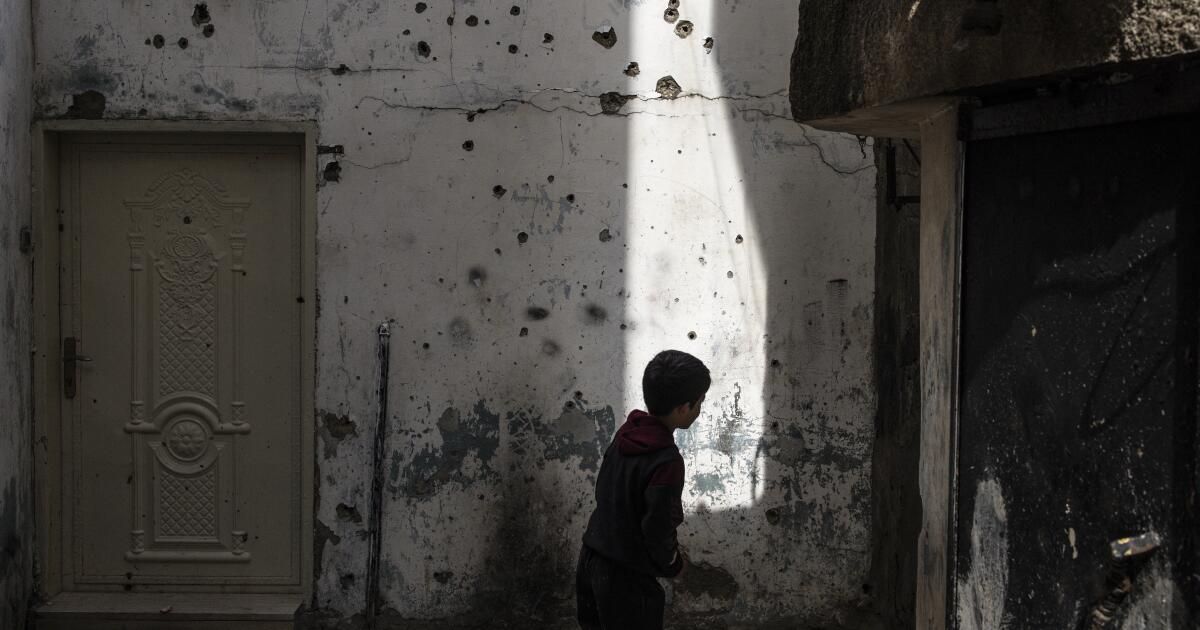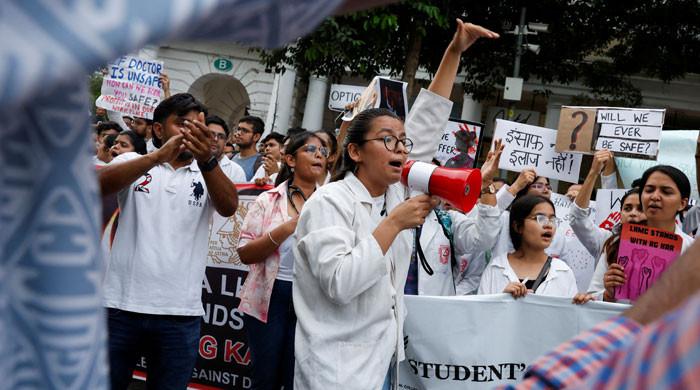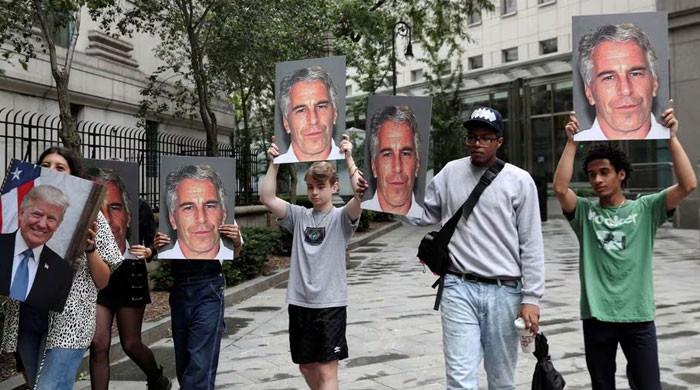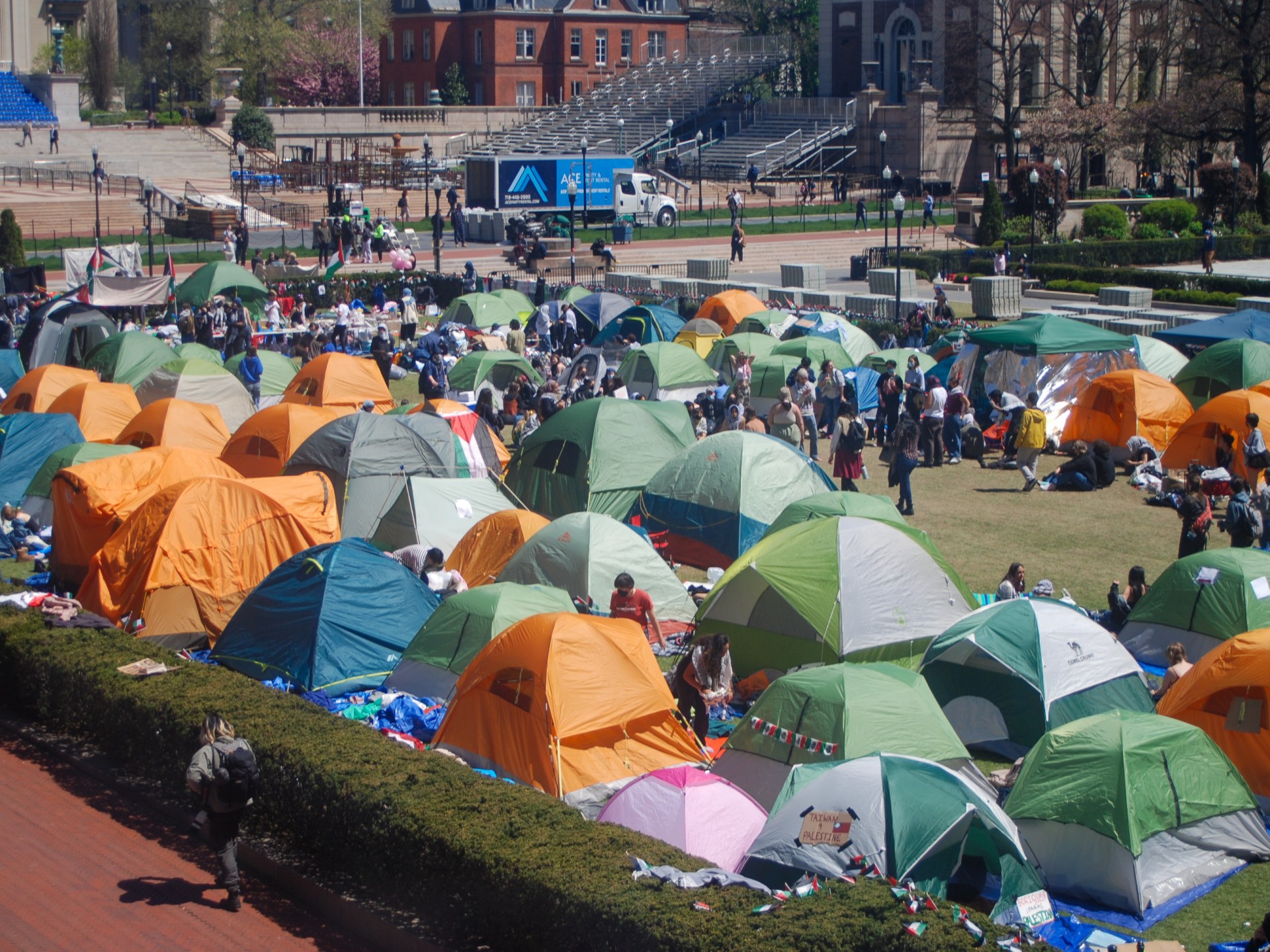JENIN, West Bank — After 15 months in an Israeli prison, Mustafa Sheta drove home to his brothers in Jenin. Many things changed while he was in prison, they said.
The fighters who once had daily battles with Israeli soldiers? Missing. The bustling refugee camp population that gave Jenin its reputation as the capital of martyrs? Missing. The Sheta theater that he ran in the camp and that he turned into a pole star of internationally known Palestinian cultural resistance? Missing.
It seemed that Jenin, known as the city that never gave up, had surrendered.
“I was surprised. The concept of resilience in Jenin is really important to the people. Where are the fighters, the Palestinian Authority, the grassroots organizations, the local leaders?” Sheta said.
“I felt like we had lost the war, like we were losing this battle.”
A view in May of Palestinian houses destroyed by the Israeli army in Nour Shams, one of three refugee camps in the northern West Bank attacked by the Israeli army.
(Wahaj Bani Moufleh/AFP/Getty)
Jenin has become the quintessential model of how Israel – in a long-running campaign called Operation Iron Wall – has largely subjugated the northern West Bank.
For more than 300 days, Israel has deployed soldiers, tanks, helicopter gunships and even airstrikes on Jenin and other cities, leaving a trail of destruction that has triggered what aid groups call the most serious episode of Palestinian displacement in the West Bank (more than 40,000 people initially, now reduced to about 32,000) since Israel occupied the region in 1967. In a report published Nov. 20, Human Rights Watch alleged that the actions of Israeli forces amounted to war. Crimes and crimes against humanity.
The area's refugee camps, created as tent camps for Palestinians displaced by Israel's creation in 1948 but which over the decades have consolidated into slums that Israel considers centers of militancy, are the target of particular Israeli ire.
Three of them (the camps of Jenin, Tulkarm and Nour Shams) have been depopulated and virtually occupied by the Israeli army for approximately nine months, with soldiers systematically demolishing houses.
Of them, the Jenin camp, which enjoys legendary status among Palestinians because of a 10-day battle between militants and Israeli forces in 2002, has fared the worst, causing destruction that many here compare to Gaza.
For Palestinians who saw the camp and the surrounding city of Jenin as a symbol of resistance against occupation, it has come to exemplify a sense of despair and exhaustion in the face of a struggle that has never seemed so fruitless to achieve a Palestinian state.
Sheta, the theater's general director, had staged politically themed plays until he was detained (without charge, he says) from December 2023 to March of this year. The Freedom Theater made its name by presenting adaptations of works such as George Orwell's “Animal Farm” and Palestinian author Ghassan Kanafani's “Men in the Sun,” a tragic novel about three men fleeing refugee camps.
Although the theater has regrouped in other places, it is no longer the same. “We consider that the theater has been arrested by the Israeli army, because we cannot be in the field,” he said. “Our soul is there.”
Using satellite data from October, the United Nations estimates that more than half of the camp's buildings (nearly 700 structures) are destroyed or damaged, with entire residential blocks razed or blown up. Several streets have been destroyed or blocked by the 29 berms erected by Israeli forces; many other streets were widened with bulldozers to create corridors intended to facilitate future military operations.

A Palestinian woman walks past a wall riddled with bullet holes in the Jenin camp in February. Since then, the countryside has been depopulated.
(John Wessels/AFP/Getty Images)
The Israeli military says its operation in the camps aims to dismantle militant infrastructure, including explosives factories, weapons depots and tunnels. It also aims to eradicate groups such as the Jenin Battalion, a loose alliance of fighters from different factions, including Fatah, Hamas and Palestinian Islamic Jihad.
The Jenin Battalion fought primarily against Israeli forces, but also clashed with the Palestinian Authority, which oversees the West Bank and collaborates with Israel on security issues; Many Palestinians see the authority as corrupt and impotent.
But any resistance that existed in the camp was crushed soon after the operation launched in January, Palestinian residents and officials say, leaving Israel's continued occupation a mystery to the estimated 14,000 people who were expelled and who have no idea when, or if, they will be allowed to return.
“There is no longer any Jenin battalion. Not a single one is alive. They were wiped out one by one,” said Shadi Dabaya, 54, who was sitting among a group of men near the main entrance to the Jenin camp. They fell silent as an Israeli armored vehicle roared by, its antenna swinging over the berm blocking the street.

Israeli soldiers walk behind a tank in the Jenin Palestinian refugee camp in February. In the months since then, the Israeli army has cut off the entrance to the camp.
(John Wessels/AFP/Getty Images)
“We just hear them shooting all the time,” Dabaya said, pointing at the Israelis. “They've turned the camp into a training ground.”
No residents have been allowed to visit, Dabaya added. In September, Israeli soldiers shot dead two 14-year-old boys who were trying to enter the camp to retrieve some of their belongings. The Israeli army told the media that the children had approached the soldiers – “they posed a threat to them” – and did not obey orders to stay away; He said the shooting was under review.
“With all the destruction, even if the Israelis withdrew from the camp tonight, we would need months to live there; all the infrastructure is destroyed,” said Mohammed Al-Sabbagh, who heads the camp's Popular Services Committee.
For now, he said, families are crammed into a block of 20 buildings with one-room student dormitories about six miles from the camp. But months after they moved there, the Palestinian Authority (from which Israel has withheld tax revenue, in addition to taking other measures that strangled its finances) cannot pay the $63,000 monthly rent.
“Those who accepted these horrible conditions, crammed with their families in a small room meant for a single student, even they will find themselves on the street,” Al-Sabbagh said.
The worst thing, he added, was having no idea if his house was still standing.
“If we knew what the Israelis were doing, we could at least figure out what to do ourselves.”
The operation in Jenin has extended far beyond the countryside. Israeli soldiers who once traveled the city's surrounding streets in armored vehicles fearing attack now conduct almost daily unhindered patrols, raiding shops and homes at will, residents charged.
The areas adjacent to the camp have also been emptied. So far, said a Palestinian Authority official who declined to be identified for security reasons, 1,500 residents of those areas have been forced to leave.
“These people have nothing to do with the countryside, but they have been expelled,” he said.
One of the affected neighborhoods is Jabriyat, an affluent area overlooking the camp that has the feel of a ghost town, where villas bear the dusty patina of abandonment.
“All of us who live around the camp are paying the price,” said Hiba Jarrar, one of the last remaining residents on her street in Jabriyat. From his balcony, he pointed to a building that Israeli soldiers recently took over.
“There is no resistance, zero. The Palestinians do not fire a single bullet. A soldier can storm any house on his own because he feels safe,” he said, adding that when he heard gunshots in the past, he assumed that Palestinians and Israelis were fighting; now he knows it comes only from Israeli soldiers.
“Do you know what's sad?” she said. “If someone fought the Israelis now, people here would tell them to stop. They just want to live. They are desperate.”
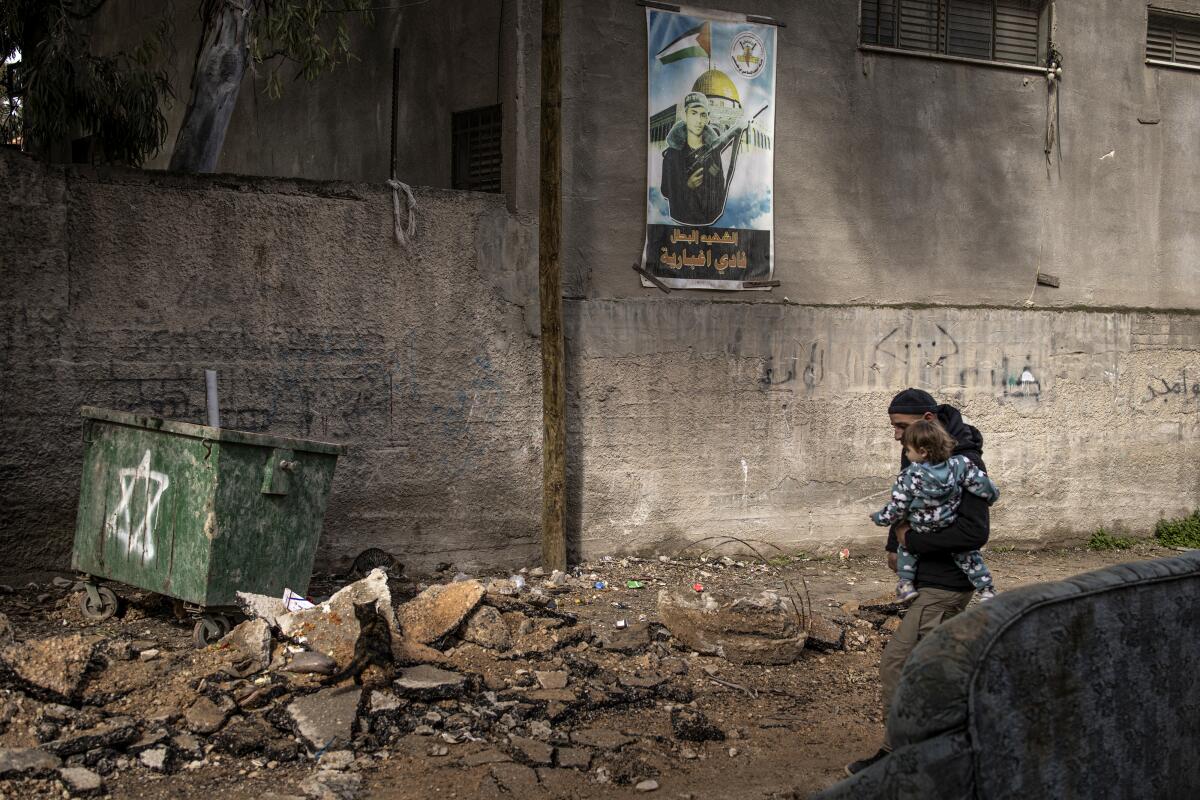
A Palestinian carries a child along a road destroyed by Israeli forces during a large-scale military operation in the east of the city of Jenin, near the Jenin refugee camp.
(John Wessels/AFP/Getty Images)
Palestinian officials say that despite repeated requests, Israeli authorities have given no indication of when they will leave the camp and all attempts to facilitate visits there have been rejected.
“What is happening in the field is not a necessary security prerogative. There is nothing forcing the Israelis to do what they are doing,” said Palestinian Authority Security Forces spokesman Brig. General Anwar Rajab, adding that his forces could handle security and that Israel was undermining his authority with its actions.
Rajab echoed the thoughts of residents, analysts and aid workers who see Israel's attack as a broader plan to transform the camps into ordinary urban neighborhoods, not refugee shelters. Such a makeover would essentially erase the notion of Palestinians as refugees.
“It's targeting a community by changing the topography on the ground,” said Roland Friedrich, director of West Bank affairs for UNRWA, the United Nations agency for Palestinian refugees. He added that Israeli officials in local media have said that once Operation Iron Wall is completed, “there will be no more geographical expression of the refugee question.”
Another measure along the same lines, according to a Palestinian Authority official who requested anonymity for security reasons, is Israel's refusal to allow UNRWA to return to the field.
Among those hoping to return one day is Sheta, who after his liberation went to the berm at the camp entrance, the closest he could get to his theater, which was founded in 2006 by a former Palestinian fighter from Jenin named Zakaria Zubeidi, along with a left-wing Israeli actor and a Swedish activist.
His imprisonment, he said, was a time of routine beatings and humiliation, in which soldiers stripped detainees naked, recorded them with their phones and mocked them. Israelis viewed Palestinians as “not even human. Or animals. Less than anything,” he said.
He has since “reverted to using the same tools” he had used before his arrest to resist Israel's occupation, but acknowledged that the people in Jenin had changed. “Their priorities are different. Some have lost confidence in the Palestinian cause,” he said.
Some in the community thought he was “crazy” for bothering to use non-violent methods. But “if you lose your cultural front, you lose your identity, your heritage, your roots with this land,” he said. Besides, he added with a tired smile, if his methods were not effective, why did the Israelis arrest him?
“That at least shows me that my work bothers you, right?”

